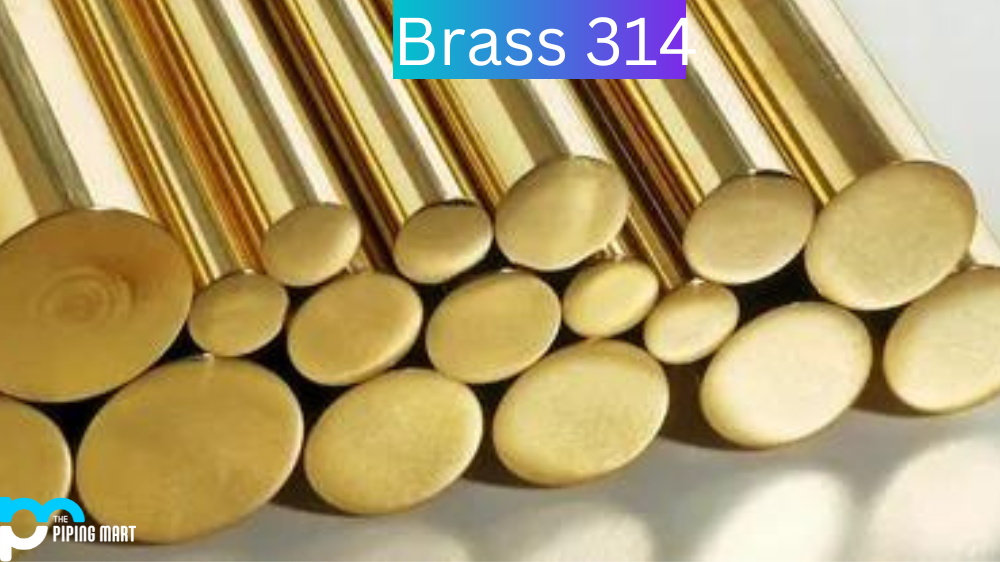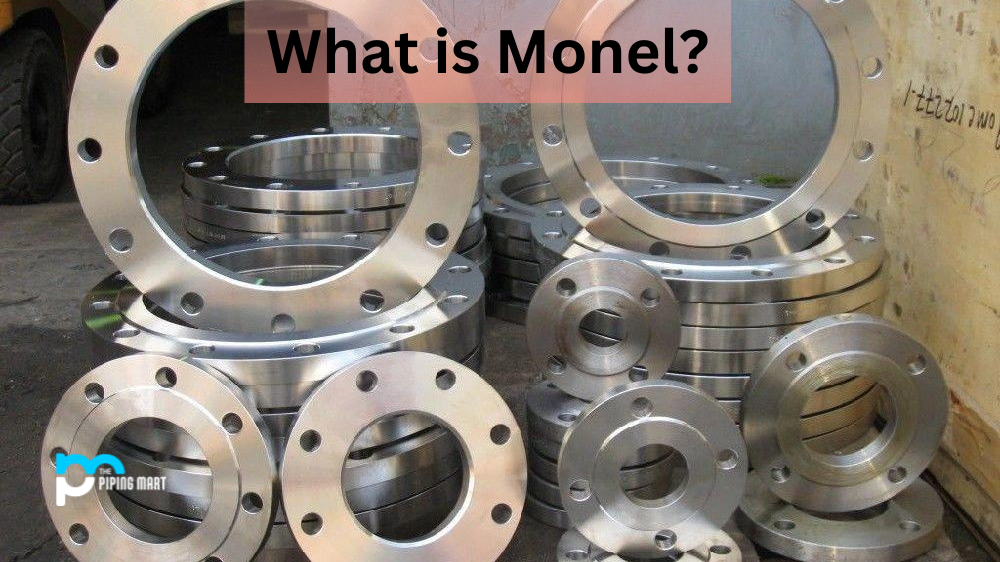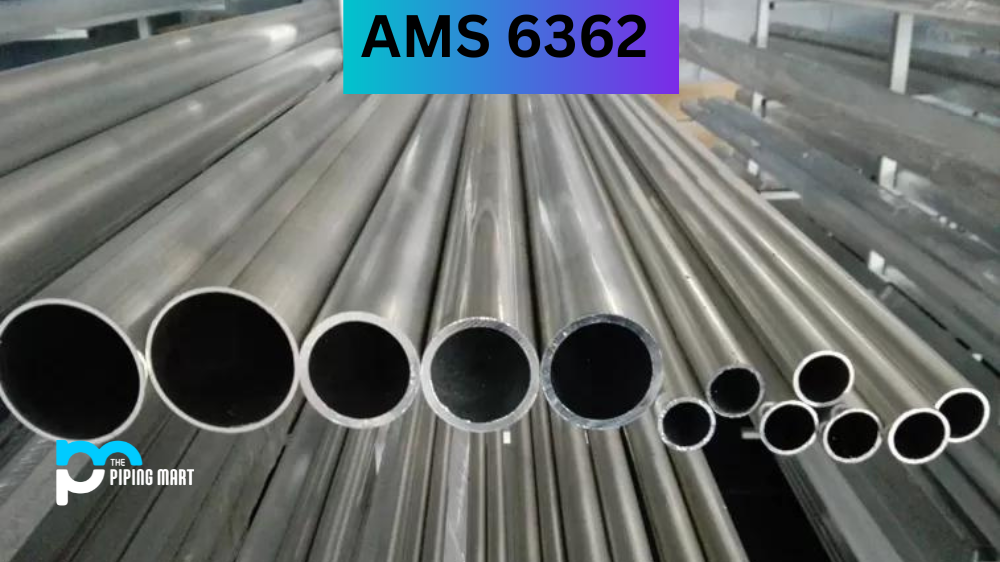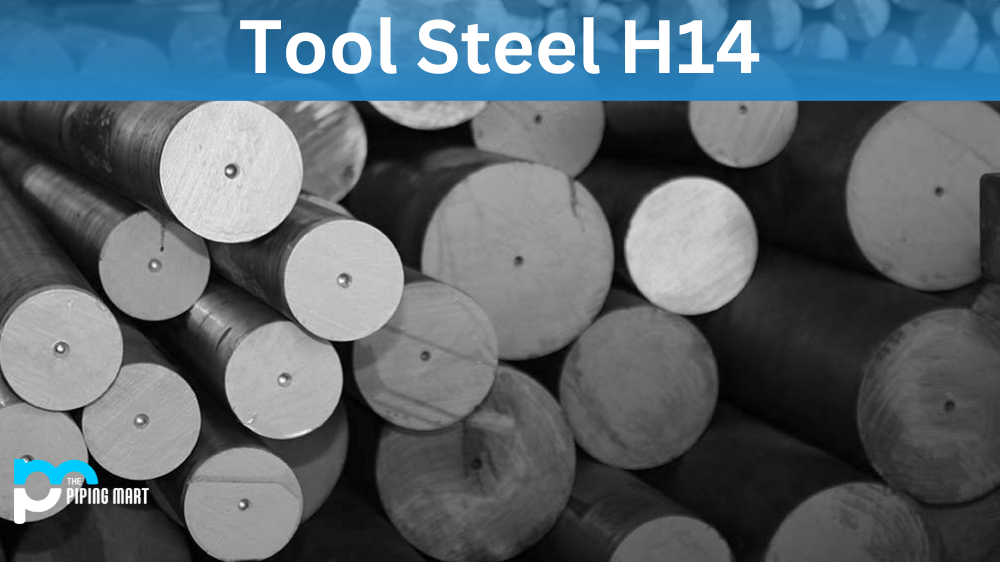Brass is an alloy made of copper and zinc, and brass has been used in various applications for centuries. One type of brass that is particularly well-suited for certain applications is UNS C31400. This particular grade of brass has a unique set of properties that make it perfect for certain projects. Let’s take a closer look at what makes Brass 314 so special.
What is 314 Brass?
UNS C31400 is an incredibly versatile and high-grade brass alloy, featuring a low lead content and excellent strength. Boasting superior corrosion resistance when exposed to harsh conditions, this particular alloy can often be found in cylinder heads, pump housings, lines, cylinders and more. In addition to being highly durable and malleable for machining purposes, 314 Brass has excellent electrical conductivity for electrical systems. With proven performance capabilities and impressive sustainability, 314 Brass truly offers all of the features that modern equipment needs.
What Forms is 314 Brass Available at Piping Mart?
- Brass 314 Stud Bolts
- Brass 314 Bars
- Brass 314 Bolts
- Brass 314 Pipes
- Brass 314 Screw
- Brass 314 Tubing
- Brass 314 Valves
- Brass 314 Washers
- Brass 314 Flanges
- Brass 314 Fasteners
314 Brass Composition
UNS C31400 contains 70% copper, 29% zinc, and 1% lead by weight. It belongs to the bronze family but does not have the same properties as other bronze alloys. One notable advantage of c31400 is that it can be welded with relative ease.
|
Chemistry Information
|
|
|
Element
|
Percentage
|
| Pb | 1.3 – 2.5 |
| Zn | 5.8 – 11.2 |
| Ni | 0 – 0.7 |
| Cu | 87.5 – 90.5 |
| Residual | 0 – 0.4 |
| Fe | 0 – 0.1 |
314 Brass UNS C31400 Mechanical Properties
In terms of mechanical properties, this alloy offers good tensile strength (up to 400 MPa) and yield strength (up to 200 MPa). In addition, this alloy also boasts good fatigue strength (up to 200 MPa) and impact strength (up to 40 KJ/m2).
| Properties | Metric | Imperial |
|---|---|---|
| Tensile strength (depending on temper) | 255-414 MPa | 37000-60000 psi |
| Yield strength (depending on temper) | 83.0-379 MPa | 12000-55000 psi |
| Elongation at break (in 254 mm) | 45.00% | 45.00% |
| Modulus of elasticity | 117 GPa | 16969 ksi |
| Poisson’s ratio | 0.34 | 0.34 |
| Machinability (UNS C36000 (free-cutting brass) = 100) | 80 | 80 |
| Shear modulus | 45.0 GPa | 6530 ksi |
Alloy 314 Brass Physical Properties
Regarding physical properties, UNS C31400 Brass has a high melting point (around 980°C), making it an ideal choice for many applications that require heat resistance, such as hot water valve bodies or exhaust manifolds.
|
Physical Properties 314
|
|||||
|
-H02
|
|||||
|---|---|---|---|---|---|
| Density | 0.319 lb/in3 | ||||
| Ultimate Tensile Strength | 52.2 ksi | ||||
| Yield Tensile Strength | 45 ksi | ||||
| Shear Strength | 29.7 ksi | ||||
| Shear Modulus | 6,530 ksi | ||||
| Hardness Rockwell | Brinell | B58-61 | 92-96 | ||||
| Elongation at Break Percentage | 18% | ||||
| Modulus of Elasticity | 16,700 ksi | ||||
| Poisson’s Ratio | 0.28 | ||||
| Machinability Percentage | 80% | ||||
| Melting Point | 1,850-1,900 °F | ||||
| Specific Heat | 8.96 x 10^-2 BTU/lb-°F | ||||
| Thermal Conductivity | 1,250 BTU-in/hr-ft^2-°F | ||||
| Electrical Conductivity | 42% IACS | ||||
314 Brass Equivalent Specification
| CDA | ASTM | SAE | AMS | Federal | Military | Other |
|---|---|---|---|---|---|---|
| C31400 | B140 B140M |
MIL-V-18436 |
Brass 314 Thermal Properties
|
Thermal Properties provided by CDA
*Temperature is measured in Fahrenheit.
|
|||||||||||
| Treatment | Minimum* | Maximum* | |||||||||
|---|---|---|---|---|---|---|---|---|---|---|---|
| Annealing | 800 | 1200 | |||||||||
314 Brass Uses
This alloy 314 can also be machined easily with conventional tools and processes such as turning or drilling operations. Furthermore, its excellent corrosion resistance means that c31400 can be used in applications where other metals, such as outdoor fixtures or marine equipment components, may rust or corrode quickly.
314 Brass Welding
The welding process does not require any special techniques or tools; however, it is important to note that the weld area may need additional heat treatment after welding to restore the material’s original strength.
314 Brass Corrosion Resistance
UNS C31400 is a high-performance alloy with superior corrosion resistance compared to many other types of alloys. It is also highly temperature-resistant and its excellent electrical and thermal conductivities make it ideal for use in various industrial applications. Additionally, it can be easily soldered or welded, making its fabrication process significantly simpler than some of its counterparts. Its superior corrosion resistance is due to the presence of chromium and molybdenum in its chemical composition, which together provides added protection against oxidation and rust formation. Brass 314’s long-lasting endurance ensures years of reliable use in various applications where regular exposure to extreme temperatures and certain chemicals is common.
314 Brass UNS C31400 Heat Resistance
UNS C31400 314 Brass is one of the most heat-resistant metals in the world, boasting a melting point of 1618 degrees Celsius. This makes it ideal for applications that require high-temperature exposure, such as industrial equipment and offshore oil rigs. Its solidity ensures that components remain fully functional under extreme circumstances; this durability also limits wear and tear from regular usage. Additionally, because of its distinctive yellow colouration, Brass 314 stands out visually among other materials and can add an aesthetically pleasing touch to any project.
314 Brass Heat Treatment
Heat treatment is a vital part of maintaining and improving the performance of brass alloys, such as Copper Alloy 314. Heat-treating Copper Alloy 314 helps to increase its strength, making it more reliable in applications where high strength is necessary. The heat-treating process works by annealing and ageing the metal, resulting in an improved physical structure that can withstand higher temperatures and better stand up to the elements. Heat-treating Brass UNS C31400 314 also makes it easier to machine, enabling more complex fabrication processes. By taking advantage of all these benefits, industries that produce iron and steel products can increase efficiency while producing superior quality components every time they use Brass 314.
314 Brass Machining
Brass 314 machining is ideal for various applications ranging from precision components used in aerospace and automotive manufacturing to intricate parts used in the medical and dental industries. The brass in this alloy can be easily machined into shapes and sizes that precisely meet your design specifications. This alloy allows for easy cutting and grinding, ensuring accurate results with every project. Additionally, because the material is resistant to corrosion, it remains reliable over time, even when exposed to harsh environments. With its versatility, durability, and accuracy, UNS C31400 machining is an excellent choice for many industrial tasks.
Conclusion
In conclusion, Brass 314 is a great choice if you are looking for an alloy with excellent mechanical and chemical properties combined with good corrosion resistance and high heat resistance. Its ability to be welded easily makes it even more attractive for many different types of projects ranging from outdoor fixtures to hot water valves and more! With its unique set of qualities, Brass 314 could be just what you need for your next project!

A passionate metal industry expert and blogger. With over 5 years of experience in the field, Palak brings a wealth of knowledge and insight to her writing. Whether discussing the latest trends in the metal industry or sharing tips, she is dedicated to helping others succeed in the metal industry.




